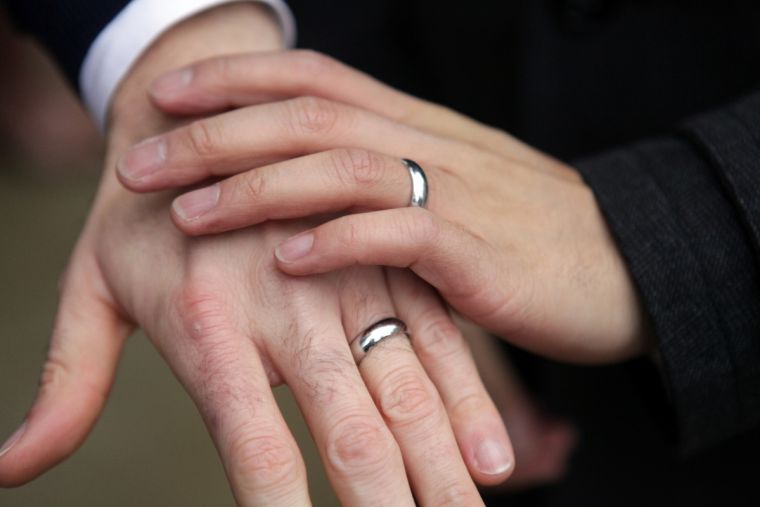Lib-Con Coalition To Block Church's Stance On Gay Marriage
Conservative Anglicans are preparing to join liberals to defeat Church leaders in a row over teaching on gay marriage.
The document, the result of more than two years of private talks at all levels of the Church's hierarchy, could be thrown out of the CofE's parliament, general synod, when it is asked to 'take note' of it next week.

The report by the Church of England's bishops refused to change the teaching that marriage is between one man and one woman – a core belief for conservative Christians. Although it did not suggest any change to doctrine, it promised 'maximum freedom' for gay couples within current laws and called for 'a fresh tone and culture of welcome and support' for LGBT people.
Incensed LGBT campaigners within the Church are waging a campaign to persuade synod members to vote against taking note with a mass letter writing campaign.
Now a handful of ultra-conservatives on synod are preparing to join their liberal opposite numbers in not taking note of the report despite its traditional stance.
Sources have told Christian Today they are concerned the promise of 'maximum freedom' will lead to hypocrisy with the Church teaching saying one thing while allowing a postcode lottery of services for gay couples.
'The report defines itself as a compromise,' one told Christian Today. 'To define the teaching of the Church then say you'll interpret it with maximum freedom is difficult.
'It leaves people in a place where teaching and practice are not aligned,' they added, saying 'it doesn't offer anything to anyone'.
But the Bishop of Maidstone, Rod Thomas – a key conservative ally – warned not taking note of the report would leave 'everything up in the air again'.
He said he entirely understood conservatives' 'hesitations and reservations' about the report but told Christian Today: 'We would be no further forward than in deciding the future position of the Church of England.'
He added: 'My personal judgement is that it would be good to take note of the report because that it is the thing that enables us to do the further work that will make clear what direction the Church is going in.'
Synod is re-elected every five years and Church laws dictate that if a report is thrown out in a take note debate, it cannot be discussed again in that five-year cycle. So if it is defeated the bishops' report could not be raised again until 2020. But although the report itself cannot be brought forward, the subject of sexuality could still be discussed.
It is not clear how many are prepared to side with pro-LGBT campaigners in the 'take note' debate, which are typically passed on the nod and are not usually a form of decision making.
The Bishop of Willesden, Pete Broadbent insisted it was a 'neutral motion'. He added: 'A vote in favour of the motion does not commit the Synod to the acceptance of any matter in the report.'
He told journalists at a pre-synod press conference: "The House of Bishops will listen carefully to the debate, and to any subsequent matters raised by members in correspondence, to inform their further work."
Although a vote against taking note would not block the report, a conservative-liberal alliance against bishops would be an extraordinary challenge to their authority.
It is unlikely to move against taking note would win support from more than half of synod – with a simple 50 per cent majority needed for the motion to pass.
But well-places sources told Christian Today they expected to force synod to split into its three separate bodies – the laity, clergy and bishops – to vote.
Church procedures allows for a vote to be taken in the separate "houses" if a request to do so is supported by 25 members.
If the vote takes place separately, each house would be required to pass it with more than 50 per cent for the motion to be accepted.
If the synod split into houses, the campaign has more of a chance of succeeding with the house of clergy the most likely to vote the report down.











